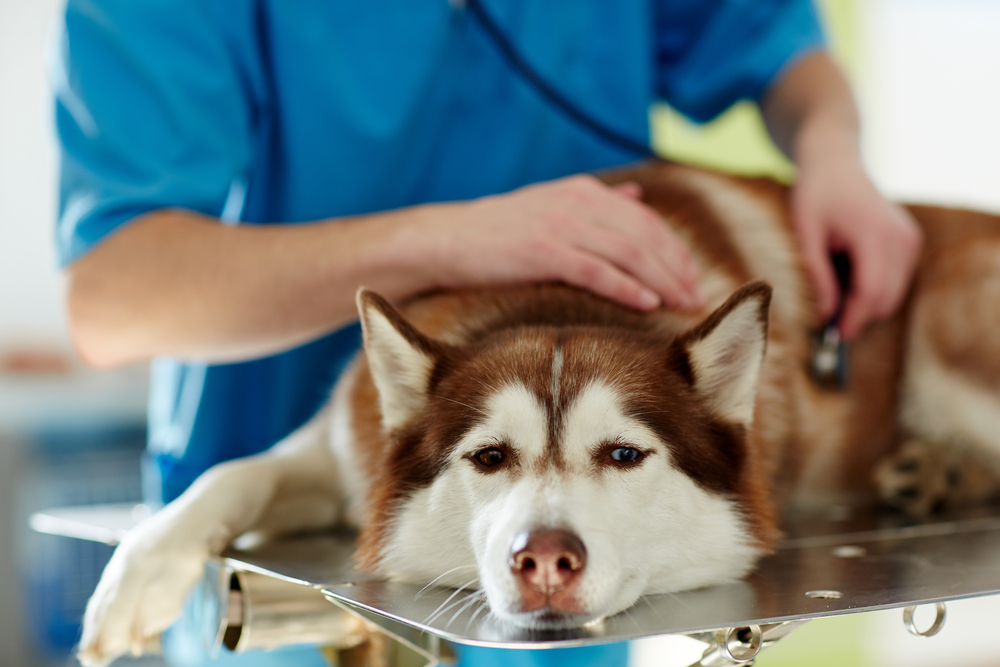Click to Skip Ahead
When it comes to human health, we have doctors, dentists, radiographers, pharmacists, psychologists, physiotherapists, and many others with distinct degrees. Dogs, on the other hand, have veterinarians and veterinary support workers. While specializations exist in the veterinary field, almost everyone involved in your pup’s health can be considered a veterinary worker.
Have you ever wondered whether doctors can take on the role of veterinary workers in emergencies? Doctors are not legally able to perform acts of veterinary medicine, but the exact boundaries are based on state-specific legislation, and a few states have good Samaritan laws that allow non-veterinary personnel to assist dogs in an emergency without legal consequences.
In an emergency, doctors may be more equipped than the average member of the public to provide assistance; however, exactly what assistance is legal depends on your state’s Veterinary Practice Act.
Vets vs Doctors
To ensure all veterinarians have the competency to do their jobs, there are restrictions on who can call themselves a vet. Firstly, a college education, more specifically a veterinary degree such as a Doctor of Veterinary Medicine (DVM) or Bachelor of Veterinary Science (BVSc), is required. In the United States, graduates must pass the NAVLE (North American Veterinary Licensing Examination),1 and finally register with their State Veterinary Board.2

Doctors are highly trained in human anatomy and physiology, but this knowledge isn’t always transferable to animals. Canines have different anatomy than people and react differently to medications than we do. Dogs also aren’t always the most cooperative of patients, so vets have skills in animal handling and may sedate or anesthetize their animal patients where doctors wouldn’t.
Vets and doctors also have very different approaches to their work. A doctor treats a willing patient who can communicate and take responsibility for their own health. A vet on the other hand treats an animal patient, factoring in input from the animal’s owner who is considered a client rather than a patient.
While human patients can describe their symptoms, vets have perfected the art of looking for clinical signs of illness, taking a history, and examining pets as a first step toward diagnosing a problem. An experienced veterinarian has treated thousands, if not tens of thousands, of cases and has a very good idea of the common ailments in different species and even different breeds of animals.
The standard for quality of life for a human is very different from that of a dog. Doctors and other healthcare professionals ideally help ensure a person can work, drive, and otherwise live a normal life. Without as many demands on animals, their quality of life mainly involves them being pain-free and able to enjoy healthy activities.

For example, one goal for most people is to have perfect vision, whereas dogs can function very well with limited eyesight. Vets also frequently must make decisions about when to euthanize animals.
The overlap of skills between vet and doctor comes through a shared understanding of biological and disease processes as well as soft skills like compassion and communication. An open wound is possibly one of the better examples of how a doctor’s and a vet’s skills overlap.
Both would act to stop bleeding, prevent infection, aid healing, and provide pain relief. Even in this simple example, what medications would a human doctor recommend for pain? Many human medications are unsafe for dogs, and recommending ibuprofen, for example, can lead to toxicity.
Legality
Ever-changing state laws called Veterinary Practice Acts guide the exact legalities around what registered veterinarians and non-veterinarians can do. Before acting, you should check the Veterinary Practice Act for your state. However, in general, a licensed veterinarian can only provide a diagnosis and prognosis, prescribe medication, and perform surgery for a dog.
If a doctor chooses to perform an act of veterinary medicine, particularly on an animal owned by another person, they open themselves up to potential legal repercussions. Many Veterinary Practice Acts contain good Samaritan laws to reduce the liability of those who help in emergency situations.
Typically, these protect veterinary workers. However, some laws protect members of the public. In some circumstances, a few states have allowed trained personnel like first responders to provide more than basic first aid.

Ethics
Allowing your dog to be treated by a doctor opens your pet up to potential misdiagnosis, inappropriate treatment, poor health outcomes, or even death. In most situations, the availability of veterinary care within a reasonable distance means there is no need to risk your pet’s well-being by having a doctor treat them.
From an animal welfare standpoint, doctors treating animals when there is an available alternative is not ethical. As a doctor or pet owner in extreme situations, you must rely on your own code of ethics to guide your decision-making. Scenarios where timely access to veterinary care is not possible but human medical supplies and knowledge are present are pretty rare. Also, ask yourself, if the roles were reversed, would you allow a veterinarian to treat you?
In Georgia, a charity known as Surgeons for Strays had human orthopedic surgeons operating on shelter animals that may have otherwise been euthanized. We think these surgeons’ hearts were in the right place, wanting to make a difference for animals that may have had no other options.
This group was not unlawful as they were acting under the supervision of a qualified veterinarian, as allowed by the Georgia Veterinary Practice Act at the time. However, they faced backlash over the way animals were handled and procedures performed and voluntarily shut down.
First-Aid
In emergencies, a medical professional or members of the public can usually provide first-aid assistance to dogs until they have access to veterinary care, but again, refer to your state’s Veterinary Practice Act.

Many Veterinary Practice Acts have good Samaritan laws protecting those who provide help in emergencies. In some situations, these laws extend to members of the public. If you are fortunate enough to have an appropriately skilled doctor at your disposal during a veterinary emergency, they might be able to help with the following:
- Stopping bleeding
- Wound care
- Monitoring seizures
- Taking vital signs
- Performing CPR
In some states, it may be legal for first responders in certain situations to provide one or more of the following to animals prior to veterinary care:
- Oxygen therapy
- Medications
- Fluids
- Bandaging
Final Thoughts
Now that you know the different skill sets between doctors and veterinarians, the laws around acts of veterinary medicine, and some ethical considerations, we hope you understand the importance of seeking veterinary treatment for your dog.
In general, doctors cannot and should not prescribe medication, make diagnoses, or perform surgery on animals. In extreme circumstances, good Samaritan laws within the Veterinary Practice Acts may allow others to aid pets in an emergency without facing liability; however, this is highly state-specific.
Featured Image Credit Olimpik, Shutterstock













